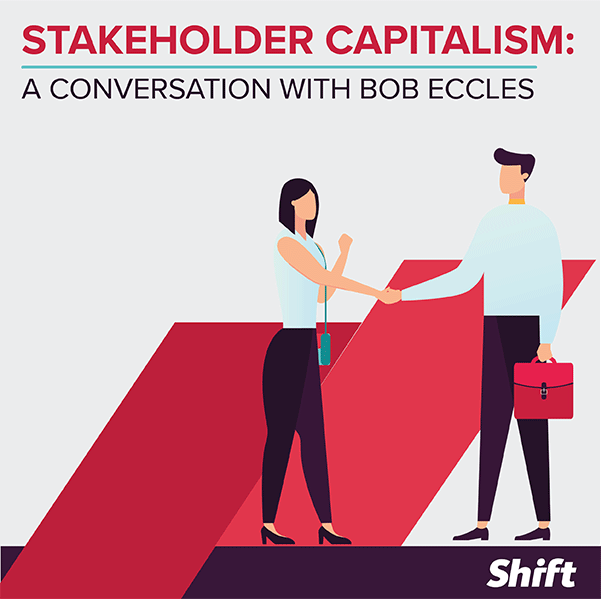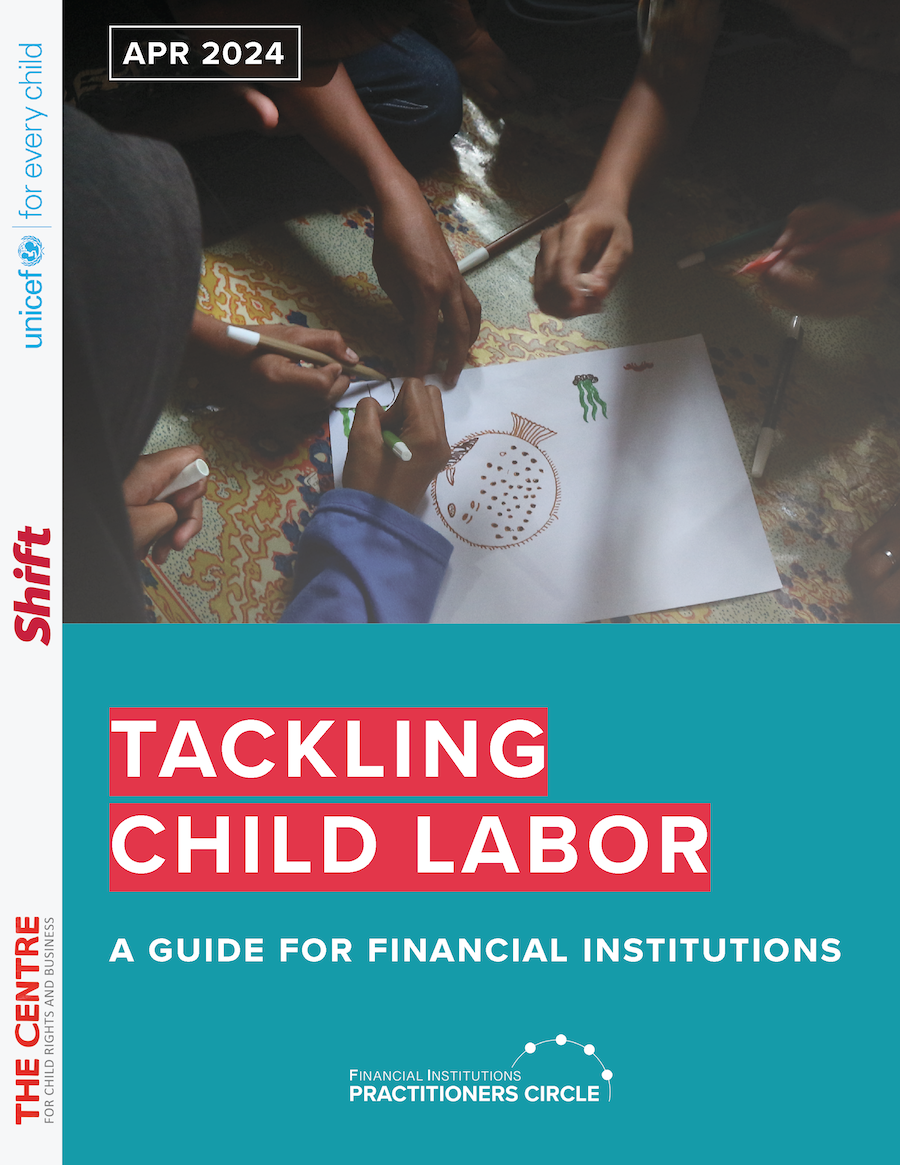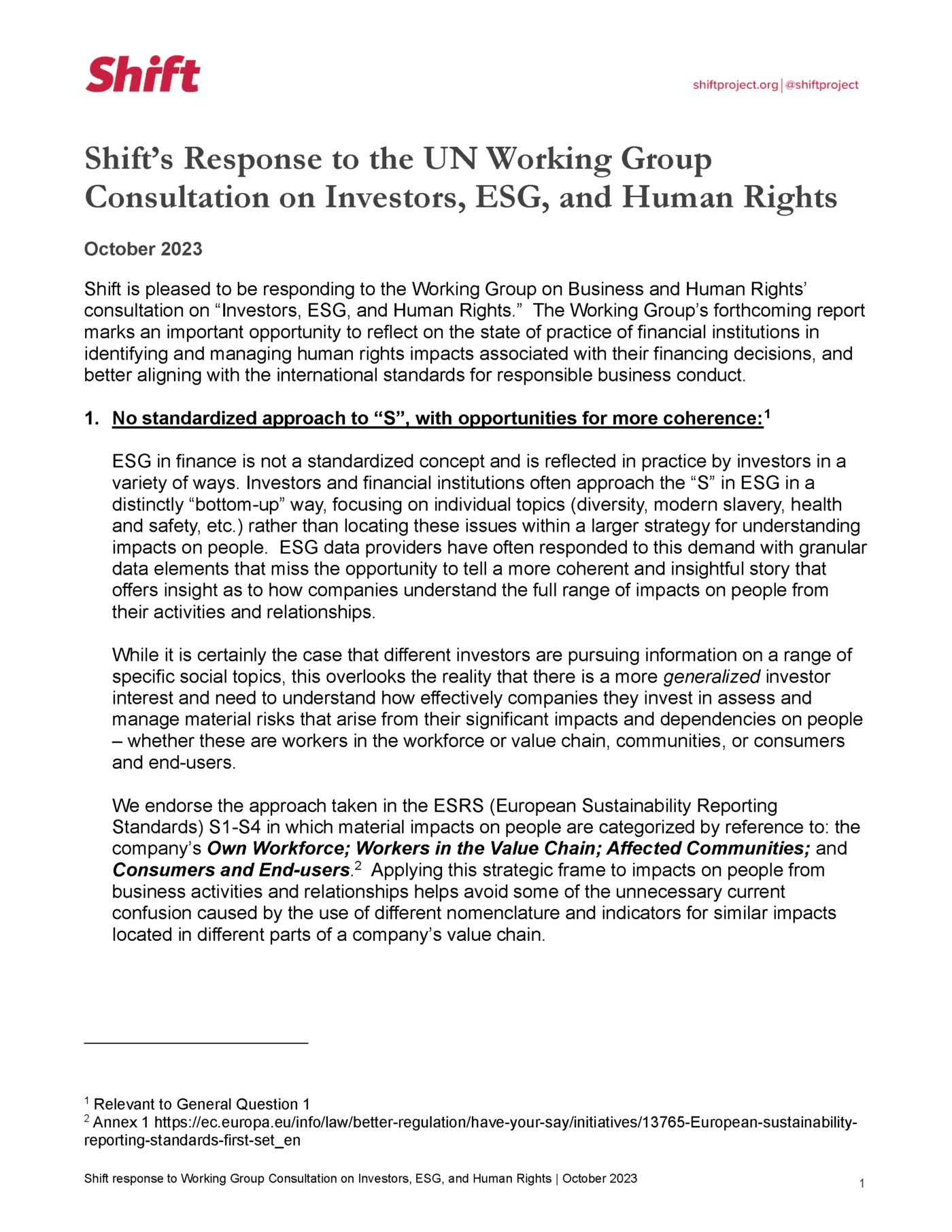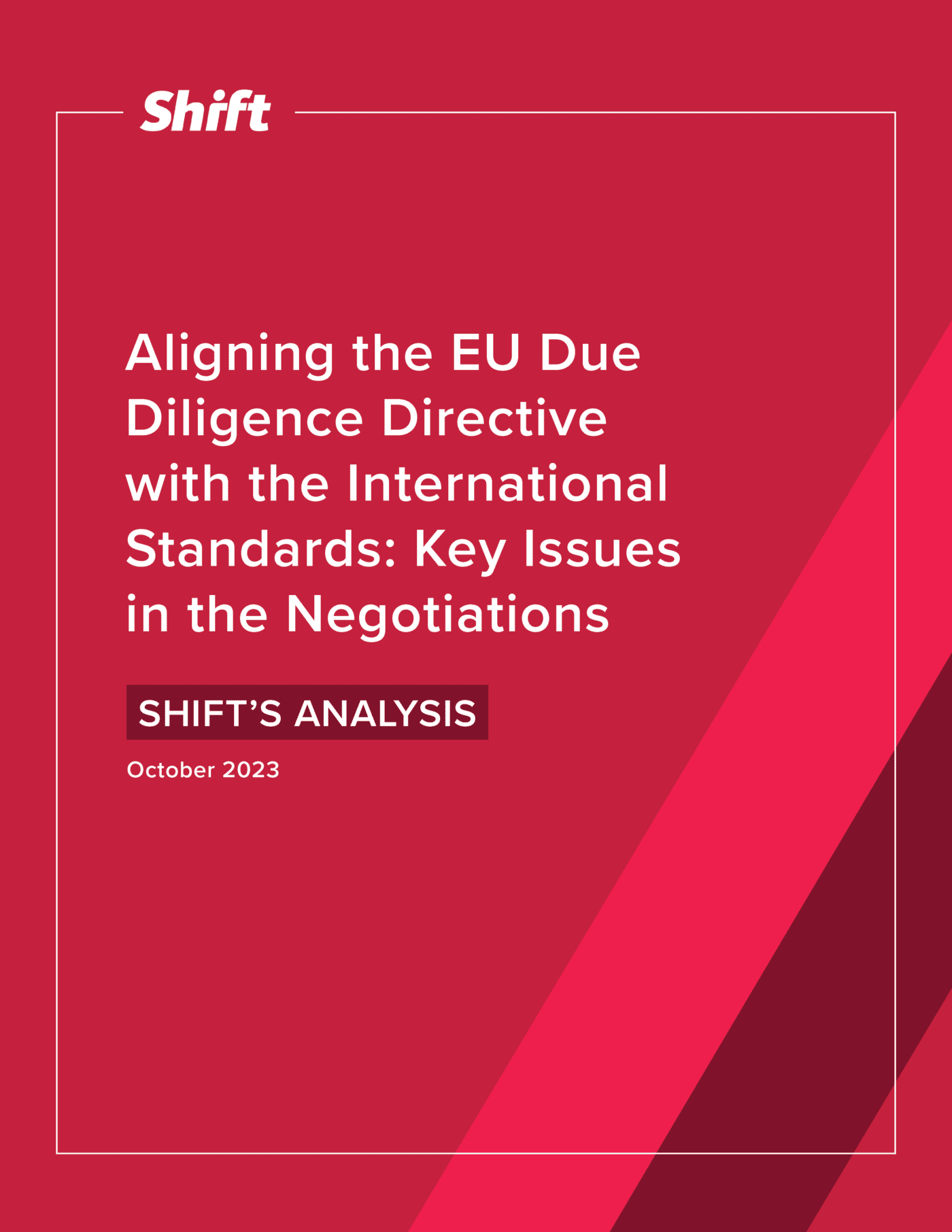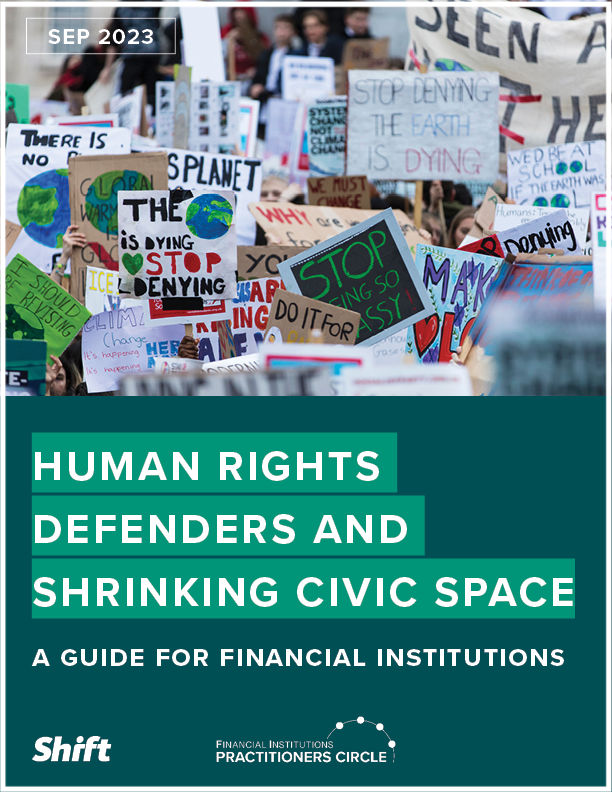About the Building Bridges for Impact Series
In the context of the 10th anniversary of the UN Guiding Principles on Business and Human Rights, Shift has brought together a number of leaders working across different fields to shape business practice, for a number of conversations on how we can build bridges to catapult our impact. Hosted by Shift President Caroline Rees, the “Building Bridges for Impact” series consists of six short podcast-style episodes.
Through this series, Shift aims to help show how the business and human rights field -in its language, aims and practices – connects with, contributes to and can build on a number of other narratives that relate to responsible business conduct.
To launch the series, we’ve invited our Chair and the author of the UN Guiding Principles, Professor John Ruggie to reflect on the 10th anniversary of the UNGPs. Starting on Monday, June 21 we will release one episode per week. You may review the full list here.
VIDEO | A CONVERSATION WITH PROFESSOR JOHN RUGGIE:
EPISODE 1
Stakeholder Capitalism: Not as Radical a Concept as we may Think
Featuring Bob Eccles. (Robert G. Eccles is a leading authority on corporate purpose and the integration of environmental, social, and governance (ESG) factors in resource allocation decisions by companies and investors. He is a Visiting Professor of Management Practice at the Said Business School, University of Oxford and an Eminent Academic Advisor to BCG on Global ESG Integration and Reporting. He is also an advisor to the non-profit Impact Management Project and Corporate Accountability Project.)
Companies exist to make money for their shareholders. Or, do they?
On this episode we spoke with Bob Eccles about the concept of “stakeholder capitalism,” the idea that companies will be most successful if they think beyond short-term returns and consider how they touch the lives of people around them, particularly those who are most vulnerable.
We talked about how shareholder primacy is not as engrained in corporate history as we tend to believe; about why, more and more, investors are pushing companies to take a long-term view; and I asked him what the board of the future needs to look like, if we want stakeholder capitalism to succeed.
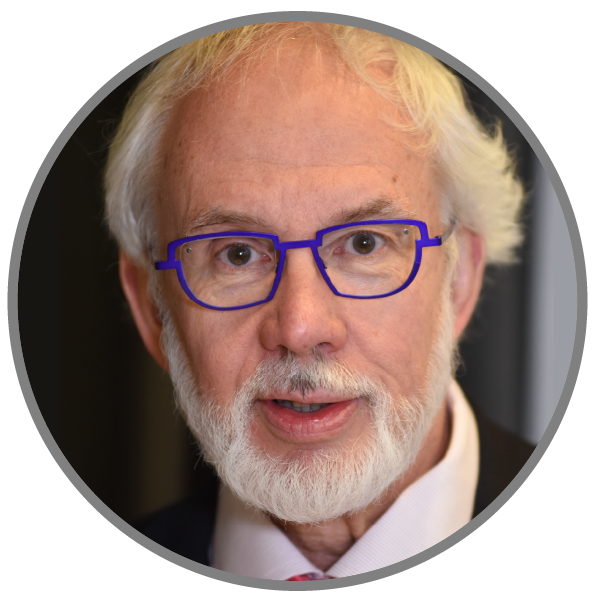
ABOUT THIS EPISODE’S GUEST
Robert G. Eccles is a leading authority on corporate purpose and the integration of environmental, social, and governance (ESG) factors in resource allocation decisions by companies and investors. He is a Visiting Professor of Management Practice at the Said Business School, University of Oxford and an Eminent Academic Advisor to BCG on Global ESG Integration and Reporting. He is also an advisor to the non-profit Impact Management Project and Corporate Accountability Project.
EPISODE 2
People and Planet: Resurfacing a Holistic, Interconnected take on Sustainable Development
Featuring Jane Nelson. ( Jane Nelson is the director of the Corporate Responsibility Initiative at the Kennedy School of Government, Harvard University, and a nonresident senior fellow in the Global Economy and Development program at Brookings. She has lived and worked on five continents and served on a variety of boards and advisory councils for companies, nonprofit organizations, and governments. Nelson has authored five books and over 100 other publications on these topics.)
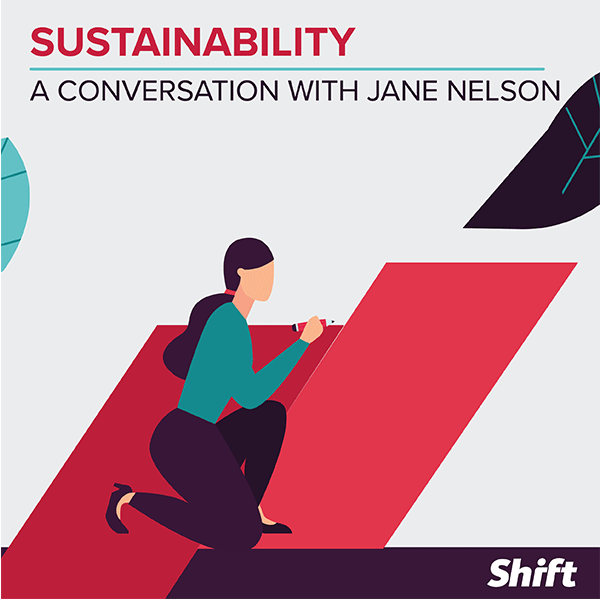
CLICK PLAY BELOW TO LISTEN TO THE EPISODE
When the term “sustainable development” was coined by the Brundtland Commission, it interwove environmental and social needs quite explicitly. Yet, almost 35 years later, these two fields seem to have drifted apart, divorcing their battles, the way they measure progress and the way they consider affectations on one another.
In this episode of Building Bridges for Impact, I chat with Jane Nelson about why respecting people’s rights is fundamental to sustainability and about how, by returning to a more “people-centered” approach, companies can be better equipped to address both the causes and outcomes of environmental degradation and climate change.
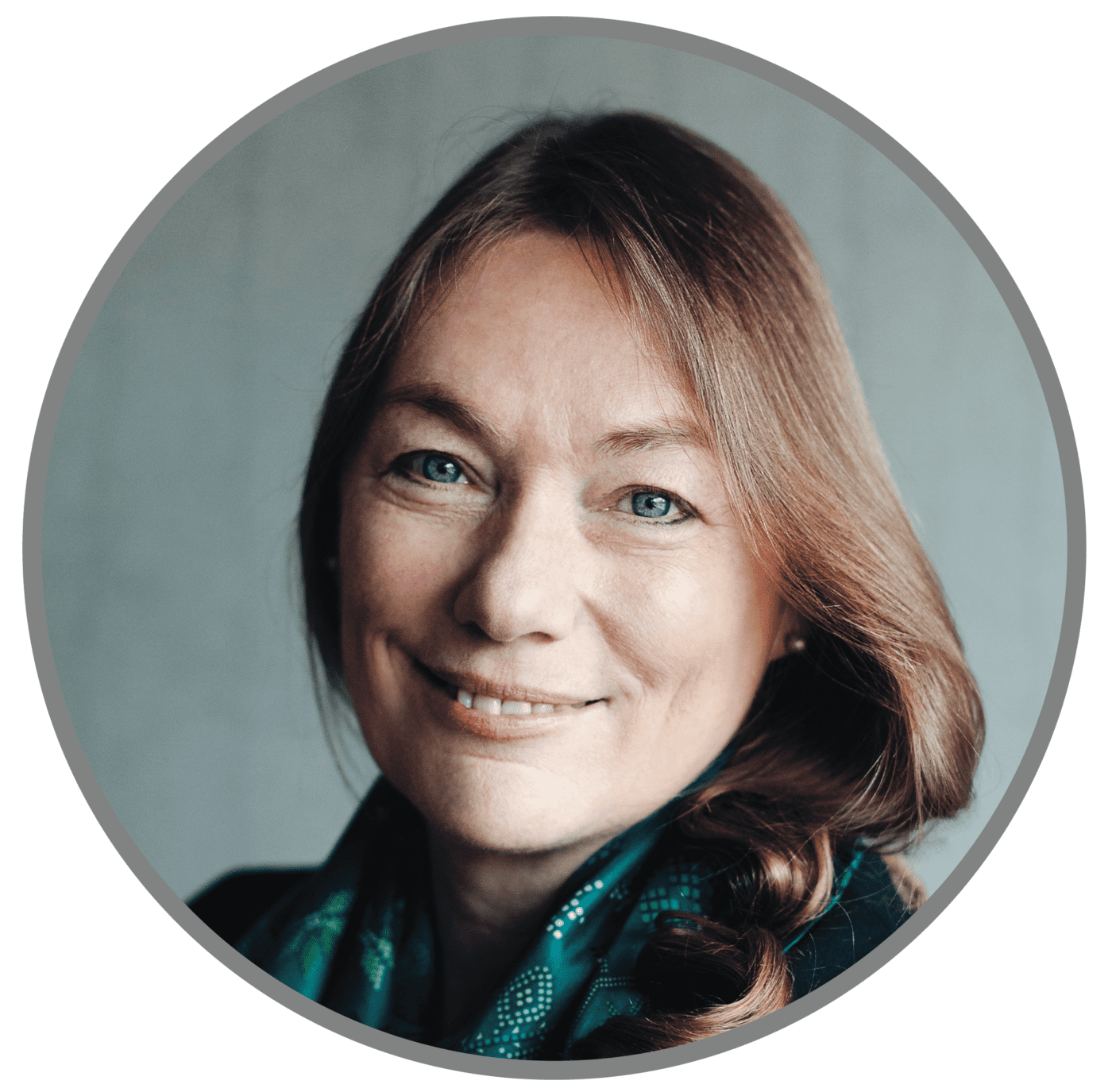
ABOUT THIS EPISODE’S GUEST
Jane Nelson is the director of the Corporate Responsibility Initiative at the Kennedy School of Government, Harvard University, and a nonresident senior fellow in the Global Economy and Development program at Brookings. She has lived and worked on five continents and served on a variety of boards and advisory councils for companies, nonprofit organizations, and governments, with a focus on the areas of corporate responsibility, sustainable development and finance, public-private partnerships, global health, nutrition and agriculture, and mining and energy. She has authored five books and over 100 other publications on these topics.
EPISODE 3
A Systems Approach to Defining Value: Embedding Human and Social Capital in how Business gets Done
Featuring Mark Gough. ( Mark Gough is the CEO of the Capitals Coalition, a global collaboration of business, governments and civil society that is transforming the way that decisions are made by including the value provided by nature and people. )
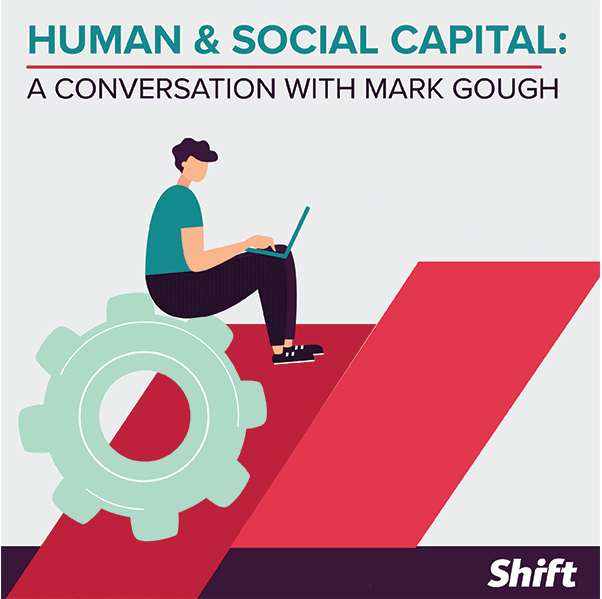
CLICK PLAY BELOW TO LISTEN TO THE EPISODE
For many businesses, thinking about how they impact people is a “nice thing to do on a Friday afternoon committee meeting” rather than a priority issue to discuss on a Monday morning. How do we change that? How do we get companies to understand the critical importance of accounting for the effects they have on people, particularly those who are most vulnerable?
We had a conversation with Mark Gough on the notions of human and social capital, as part of a systems approach to understanding value. We talk about how Covid-19 has evidenced the way companies depend on people; how the notion of “capitals” can help businesses use language that they know to embed care for people’s rights into their systems; and about where existing systems are simply not working and need to be reconsidered altogether.
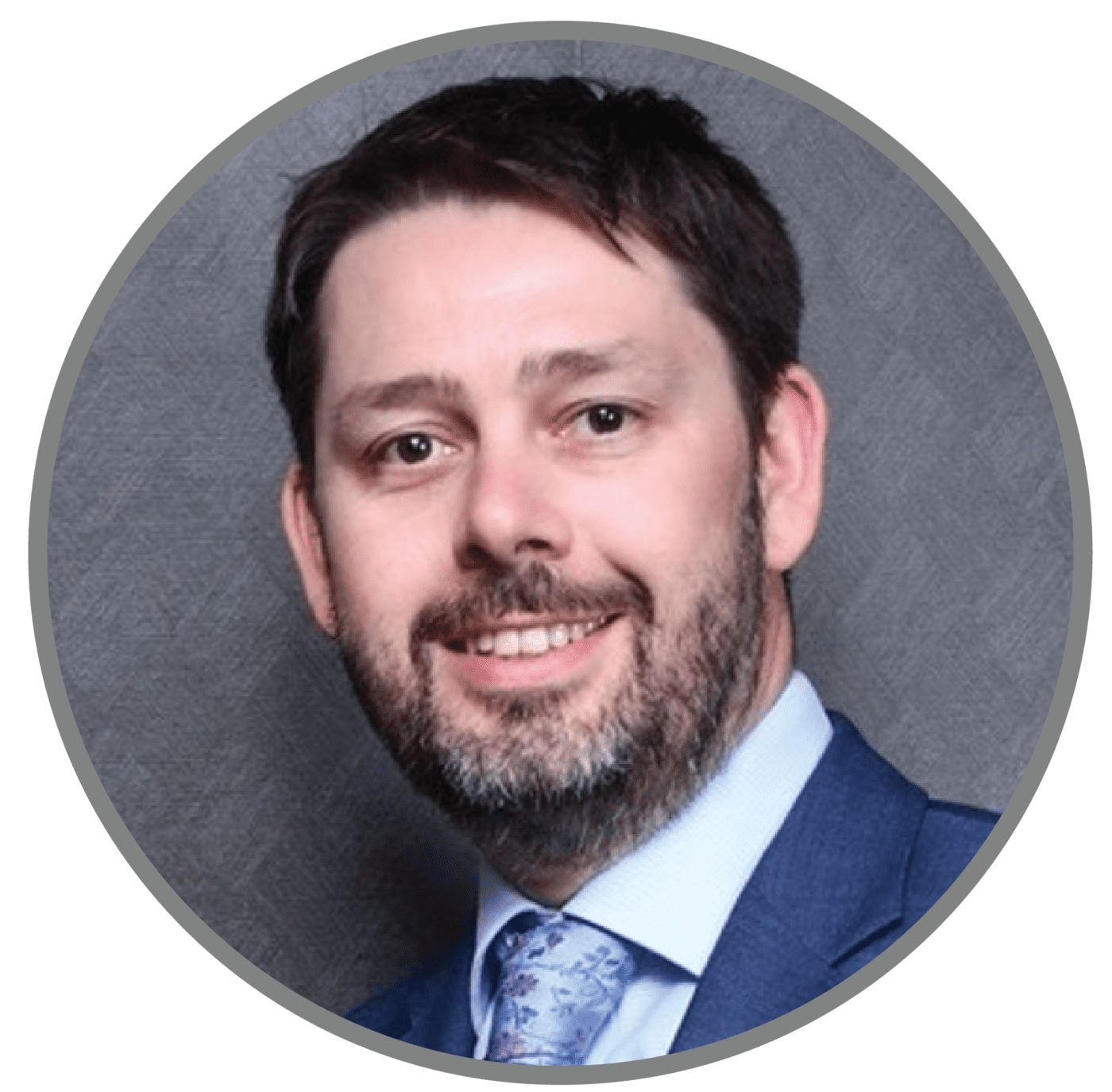
ABOUT THIS EPISODE’S GUEST
Mark Gough is the CEO of the Capitals Coalition, a global collaboration of business, governments and civil society that is transforming the way that decisions are made by including the value provided by nature and people.
Previously, Mark led the Natural Capital Coalition and was on the board of the Social and Human Capital Coalition. He championed and delivered the bringing together of these two communities, creating a unified, systemic, collaborative approach. Mark has worked extensively in the private sector, leading programs and strategy for the Crown Estate and Reed Elsevier (now RELX), as well as advising many more.
EPISODE 4
The ‘S’ in ESG: Measuring the Social Performance of a Company in a way that Matters
Featuring Geeta Aiyer. ( Geeta Aiyer is the President & Founder of Boston Common Asset Management. She serves on the Board and Investment Committee of NRDC and on the Board of the Better Future Project in Massachusetts. She is co-founder and board chair of DAWN Worldwide, an NGO addressing gender-based violence. )

CLICK PLAY BELOW TO LISTEN TO THE EPISODE
ESG investing has been around for at least two decades. Yet, the ‘S’ in ESG has been the ‘poor cousin in the trio’, receiving limited attention and often subject to misunderstanding and misinterpretation. The realities of COVID and its disproportionate impacts on low-paid workers, minorities and marginalized communities are widely seen as a turning point, bringing much greater focus to companies’ social performance.
In this week’s episode, we talk to Geeta Aiyer about the changes now underway, as companies, investors and regulators work to better define and analyze the ‘S’ in ESG. We discuss continuing demands for short-term returns to shareholders alongside growing expectations that companies do business in ways that ensure respect for people. We also explore what investors look for in a company to know whether it is serious about tackling its social risks and what that implies for the kind of information it’s important for investors to have.
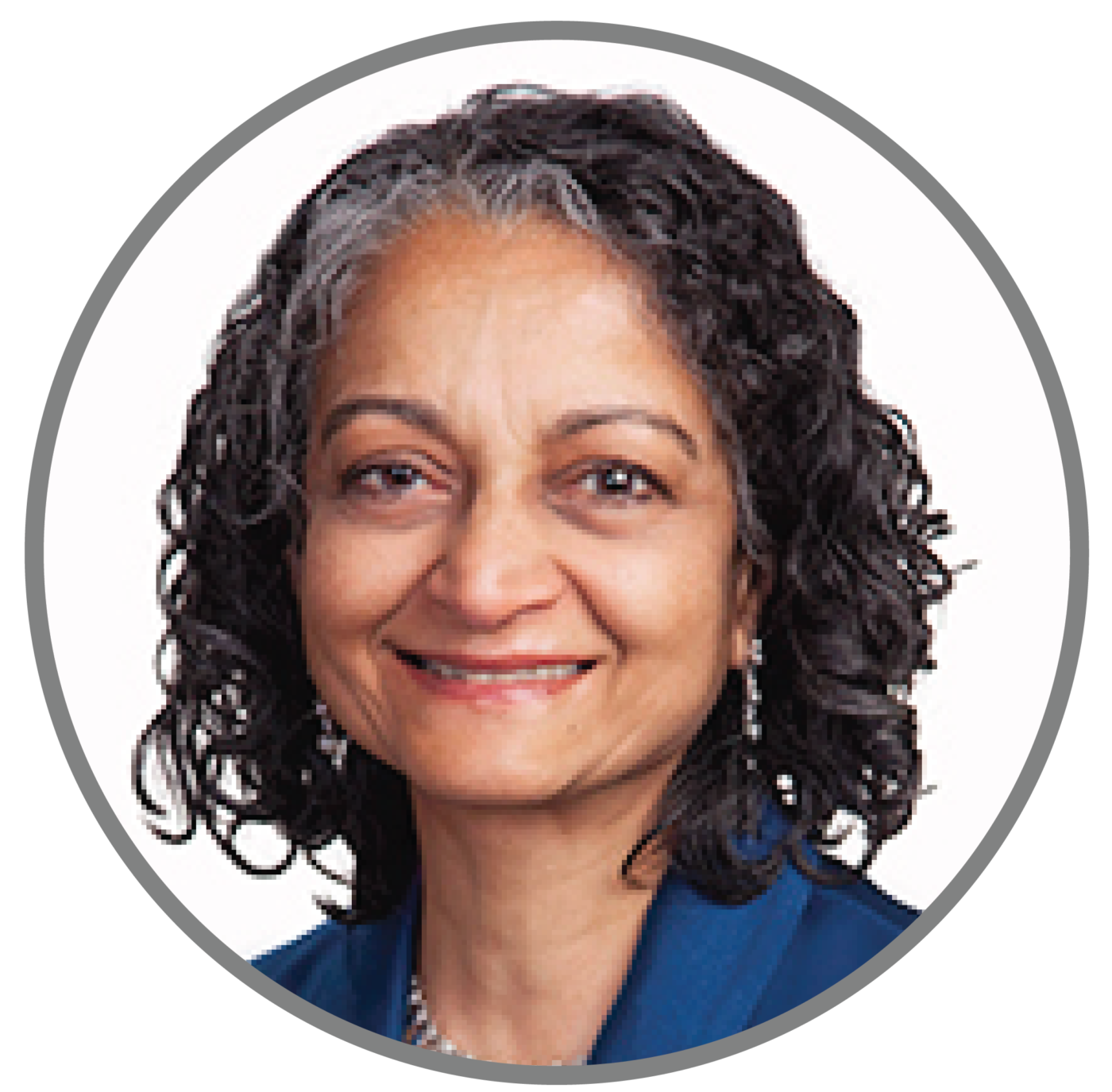
ABOUT THIS EPISODE’S GUEST
Geeta Aiyer combines over 30 years of experience in finance, with a passion for environmental and social justice. As President & Founder of Boston Common Asset Management, she has built a strong investment record, and meaningfully improved the policies and practices of portfolio companies through impactful, proactive Shareowner Engagement. Geeta serves on the Board and Investment Committee of NRDC and on the Board of the Better Future Project in Massachusetts. She is co-founder and board chair of DAWN Worldwide, an NGO addressing gender-based violence. Geeta has previously served on the boards of the Sierra Club Foundation, and YW Boston. From 2015-2017, she served on the Board of UN PRI.
EPISODE 5
Social Inequality: in the Same Storm, but not on the Same Boat
Featuring Peter Bakker. ( Peter Bakker has been the President and CEO of WBCSD since 2012. WBCSD is a global, CEO-led organization of over 200 leading businesses working together to accelerate the transition to a sustainable world. )
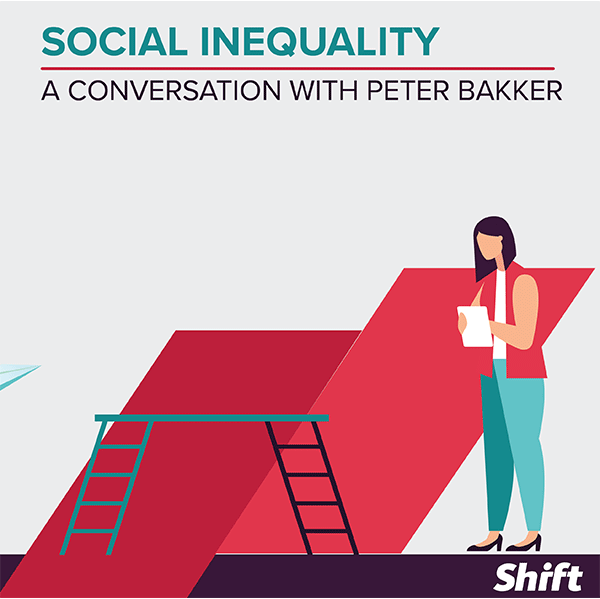
CLICK PLAY BELOW TO LISTEN TO THE EPISODE
Why should growing inequalities matter to business? A quarter of the world’s economic gains go to the richest 1%, while half of the population receives just 12%. Almost half of the wealth globally belongs to 1% of the population, while half of the population lives with 2%. Are these blatantly harsh numbers a risk to companies? Is it a threat to a business’s license to operate?
In this week’s episode, we talk to Peter Bakker about inequality as a systems-level risk, at the same level of climate emergency end environmental degradation. We discuss whether companies are recognizing the urgency of addressing this issue and whether initiatives like securing a living wage are gaining traction in mainstream business conversations.
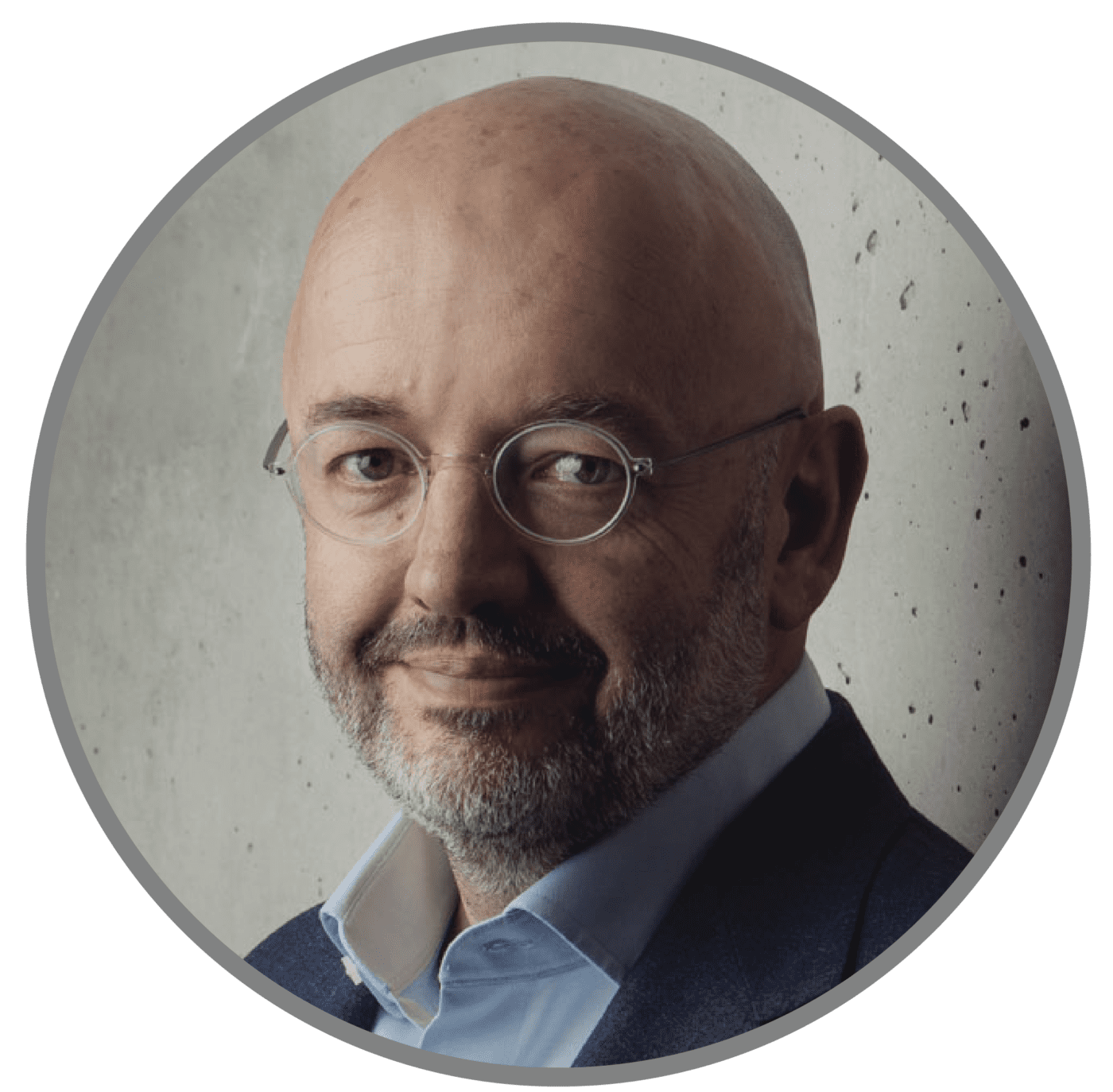
ABOUT THIS EPISODE’S GUEST
Peter Bakker has been the President and CEO of WBCSD since 2012. WBCSD is a global, CEO-led organization of over 200 leading businesses working together to accelerate the transition to a sustainable world.
Mr. Bakker is a distinguished business leader who, until June 2011, served as CFO and then CEO of TNT NV, the global transport and logistics company. He has been the recipient of the Clinton Global Citizen Award (2009) and the Sustainability Leadership Award (2010). Mr. Bakker serves as a member of several corporate sustainability advisory boards.
To receive an email when Shift releases a new episode of the Building Bridges Series, click here.

